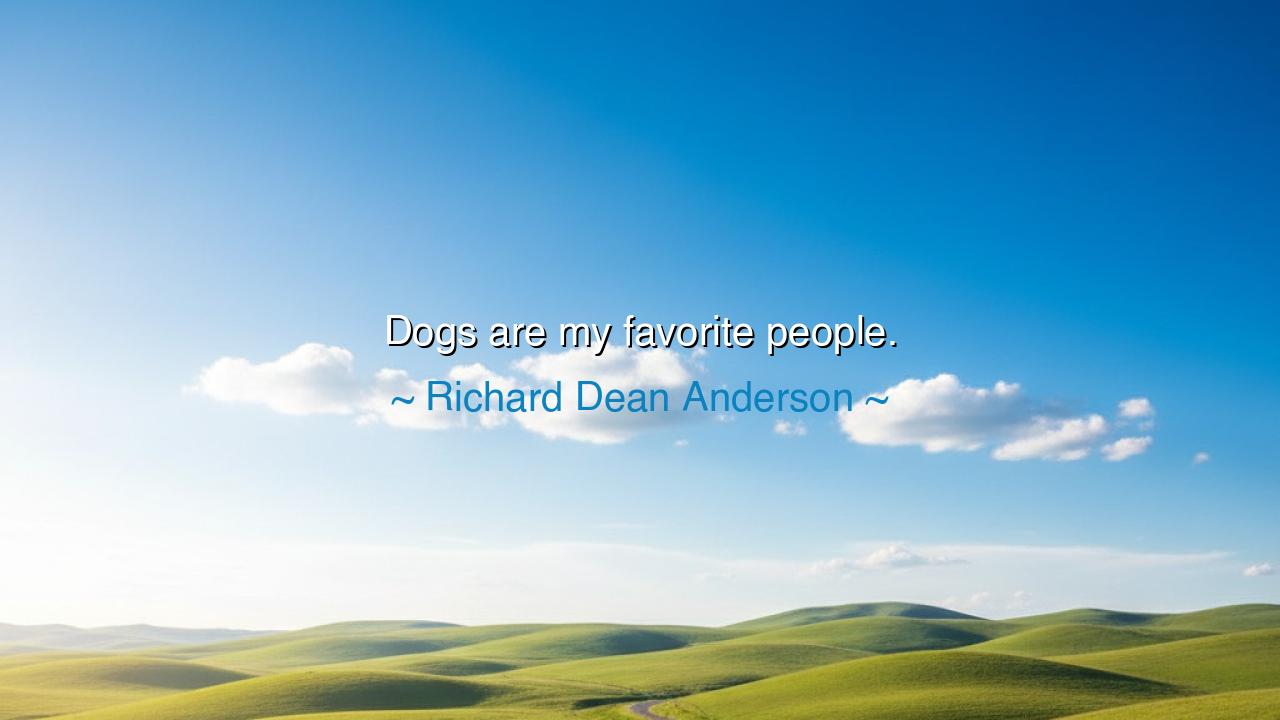
Dogs are my favorite people.






Richard Dean Anderson, with words both simple and profound, once declared: “Dogs are my favorite people.” Though this phrase may stir a smile, it carries within it a deeper truth about loyalty, honesty, and the yearning of the human heart for companionship untainted by deceit. In calling dogs “people,” Anderson elevates them, not as beasts beneath us, but as kindred souls who embody the virtues we too often fail to practice. It is a reminder that greatness does not always wear the face of man, but may walk beside him on four faithful legs.
The origin of this saying lies in the eternal bond between humankind and the dog, a bond forged in fire and shadow since the dawn of civilization. From the first wolves who crept close to the campfires of our ancestors, to the loyal companions who rest at our feet today, dogs have stood as guardians, workers, and friends. They have served kings and beggars alike, knowing no division of wealth or class. Anderson, in his simplicity, captured what sages might take many words to say: that in their constancy, dogs surpass many humans in virtue, making them worthy of being counted as the truest of “people.”
To call dogs our favorite people is to acknowledge the purity of their love. They do not flatter for gain, nor betray for advantage. They guard their master’s secrets, they forgive swiftly, and they love without condition. In them there is no mask, no hypocrisy, no hidden agenda—only presence, loyalty, and joy. In an age where men often cloak their intentions, the dog reminds us what it means to be true. The boy who grows with a dog learns friendship not in theory, but in flesh and blood, in wagging tail and watchful eye.
History offers us striking examples. Think of Greyfriars Bobby in Scotland, who kept vigil at his master’s grave for fourteen long years, refusing to leave though the world moved on. Many men forget their promises; the little dog did not. Or consider the war dogs of ancient Rome, armored and trained to defend their legions with unswerving courage. They did not question the cause or shrink from duty. Their loyalty was total, their devotion complete. Such stories reveal why Anderson’s words carry weight: dogs are the kind of people we wish more humans would be.
Yet in these words there is also a gentle rebuke to mankind. If a dog, with no speech and little reason, can live with






AAdministratorAdministrator
Welcome, honored guests. Please leave a comment, we will respond soon